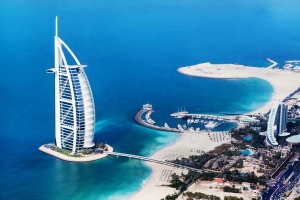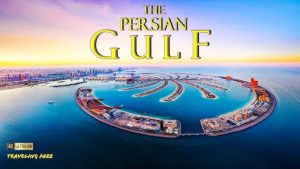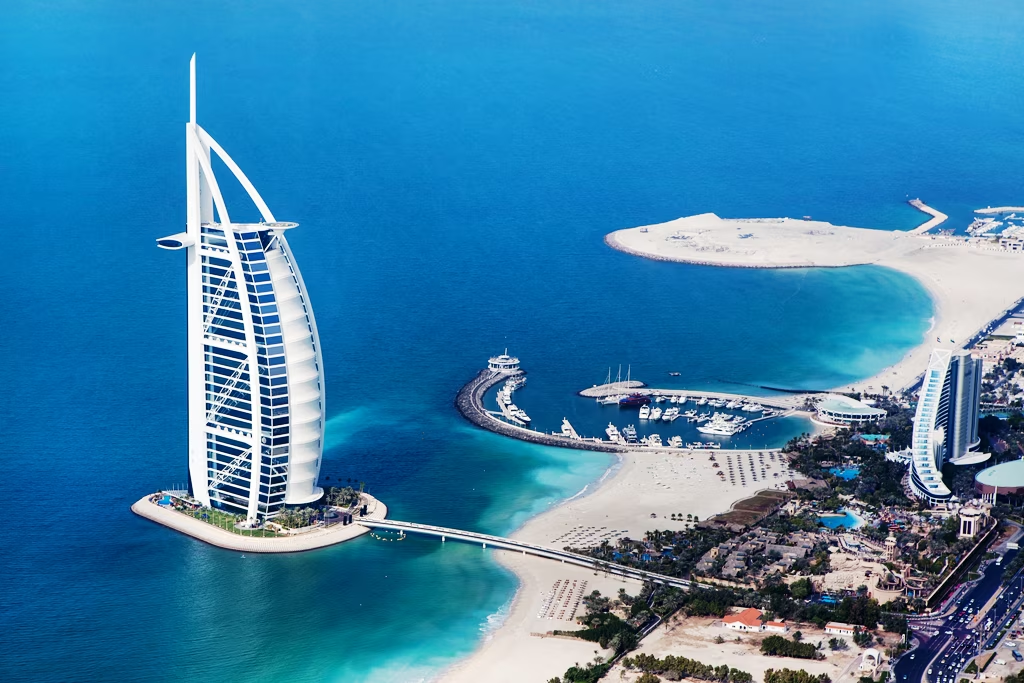Explore the potential collapse of Gulf tourism if the Strait of Hormuz were blocked—from stranded cruise ships to empty luxury hotels. Learn how Dubai, Qatar, and Oman could adapt to this geopolitical nightmare.
The Persian Gulf’s Tourism Miracle Under Threat
Picture the Dubai Marina’s glittering towers standing silent. The turquoise waters of Oman’s Musandam Peninsula devoid of dhows. The sprawling malls of Doha empty except for echoing footsteps. For the Arab Gulf states, where tourism fuels economies and shapes global identities, a blockade of the Strait of Hormuz wouldn’t just disrupt oil shipments—it could unravel decades of carefully constructed tourism empires.
The narrow Strait serves as the region’s economic carotid artery. While most analysis focuses on energy exports, few consider how its closure would devastate the Gulf’s tourism sector—an industry that has become the centerpiece of national visions from Saudi Arabia’s Red Sea Project to Qatar’s 2030 diversification plans.
This article examines:
-
The invisible connections between maritime trade and tourism infrastructure
-
Sector-specific vulnerabilities from luxury resorts to budget airlines
-
Lessons from past regional crises and potential adaptation strategies

The Fragile Foundations of Gulf Tourism
Fuel: The Hidden Lifeblood of Luxury
Gulf tourism’s extravagant experiences—from indoor ski slopes to artificial archipelagoes—all share a common dependency: cheap, abundant energy. Consider that:
-
A single day’s operations at Dubai’s Atlantis Resort consumes more electricity than a mid-sized European town
-
Qatar Airways’ fleet of Airbus A380s burns through Olympic swimming pools worth of jet fuel weekly
-
The region’s massive desalination plants (providing 90% of drinking water) run on natural gas
During previous Hormuz tensions, hotel managers in Dubai reported having to choose between powering guest rooms or kitchen refrigeration when fuel deliveries were delayed.
Supply Chains: When the Buffet Lines Run Dry
The Gulf’s tourism model relies on just-in-time delivery of everything from Scottish salmon to French champagne. With most food imported and minimal storage capacity, even minor shipping disruptions cause immediate menu reductions.
Industry insiders recall the 2017 Qatar blockade when luxury hotels suddenly substituted Australian wagyu with local camel meat—a change that sparked hundreds of guest complaints. A full Hormuz closure could see:
-
5-star restaurants serving canned goods within a week
-
Hotel spas running out of imported skincare products
-
Bars rationing premium alcohol
The Perception Paradox
Gulf nations have spent billions cultivating images as stable, ultra-modern destinations. Yet their tourism sectors remain hypersensitive to geopolitical tremors. After missile attacks near Fujairah in 2019, bookings at Dubai’s beach resorts dropped by nearly 20% despite no actual threat to tourist areas.

Sector-Specific Apocalypse Scenarios
Aviation: Stranded Hubs and $10,000 Tickets
The Gulf’s airline business models depend on two fragile assumptions:
-
Cheap fuel from local refineries
-
Smooth transit for global travelers
A blockade would shatter both. Industry analysts suggest:
-
Emirates might need to park its A380 fleet within days
-
Ticket prices could triple as carriers impose war risk surcharges
-
Connecting passengers would avoid Gulf hubs, opting for Istanbul or Athens instead
Cruise Tourism: Ghost Ships of the Persian Gulf
The region’s ambitious cruise sector faces existential threats:
-
Ships may abandon Gulf itineraries entirely, as happened during COVID
-
Those continuing would face 14-day detours around Africa
-
Insurance premiums could make port calls financially unviable
Luxury Hotels: Empty Suites and Broken Dreams
At $3,500-per-night properties, small disruptions create big problems:
-
European and Russian elites would flee on private jets
-
Staff shortages would cripple service (most workers are imported)
-
Convention business—the lifeblood of city hotels—would evaporate
–
Adaptation Strategies: Lessons from Past Crises
Fuel Workarounds
-
Saudi Arabia could redirect some oil via its East-West Pipeline
-
Qatar might accelerate LNG shipments to Oman for transshipment
-
UAE could tap strategic reserves (but these last only weeks)
Marketing Through Crisis
-
“Safe Zone” campaigns highlighting distance from conflict
-
All-inclusive packages to offset traveler anxiety
-
Virtual experiences for attractions that become inaccessible
Policy Interventions
-
Temporary tourism tax suspensions
-
Emergency visa relaxations
-
Government subsidies for affected businesses
–
FAQ: Strait of Hormuz Blockade & Tourism
How quickly would tourists feel the impact?
Immediately—through flight cancellations and hotel service reductions within days.
Which destinations are most vulnerable?
Qatar’s compact economy and Dubai’s tourism dependence make them particularly exposed.
Have Gulf nations prepared for this scenario?
No. Contingency plans exist but have never been tested at full scale.
Conclusion: Beyond the Blockade
While the scenarios appear dire, the Gulf has repeatedly demonstrated resilience. The same innovation that built islands in the sea and ski slopes in the desert may yet devise solutions to overcome even a Hormuz closure.
For industry professionals, the lesson is clear: diversify supply chains, develop contingency plans, and prepare to adapt at unprecedented speed.
Read more here:
Can Iran Block the Strait of Hormuz? Implications for International Transport, Economy, and Trade
References
-
International Energy Agency. (2025). World Energy Outlook Special Report: Middle East Energy Security
-
Gulf Tourism Observatory. (2024). Annual Report on Hospitality Sector Vulnerabilities
-
Lloyd’s Maritime Intelligence. (2025). Alternative Shipping Routes Analysis
-
World Tourism Organization. (2024). Crisis Management in Luxury Destinations
-
Middle East Economic Survey. (2025). Fuel Subsidy Programs and Tourism
-
Cruise Lines International Association. (2024). Itinerary Diversification Strategies
-
Dubai Department of Tourism. (2025). Emergency Response Planning Documents
-
Qatar National Tourism Council. (2024). Post-Blockade Recovery Case Studies
-
UN World Tourism Organization. (2025). Geopolitical Risk Assessment Framework
-
International Air Transport Association. (2024). Fuel Contingency Planning Guidelines

